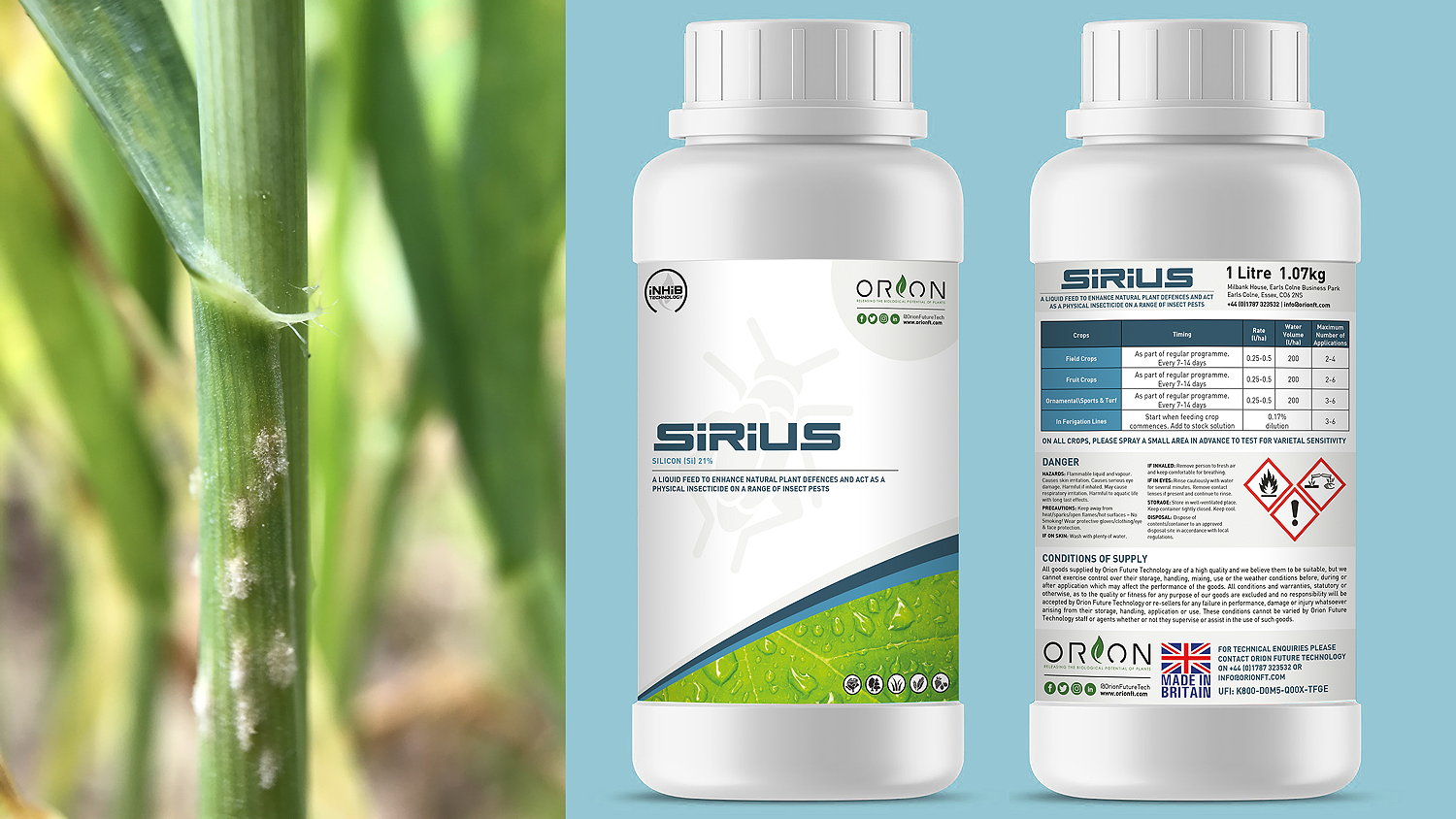
Silicon, the world’s second most abundant element, can increase yield, improve soil health, strength plants and improve disease response, according to silicon biostimulants specialist Orion FT.
Using silicon could also help UK farmers reach Environmental Land Management Schemes (ELMS) targets by reducing the use of chemicals and fertilisers.
“Silicon offers countless benefits to crops and soil health,” Orion FT director James Kennedy said. “It boosts the genetic potential of plants by strengthening cells, enhancing cuticle thickness, and increasing leaf hair length. These benefits increase a plant’s resilience to factors such as pest or disease penetration, as well as water stress.”
Orion FT offers a range of silicon products that enhance the crop’s natural defences to protect against pest and pathogen attack.
“Silicon only becomes available to plants in its monosilisilic form,” Mr Kennedy added. “Our enhanced iNHiB Technology makes silicon available to the crops in this way to help mitigate plant stress.”
Once absorbed, silicon is deposited within and between the cells of the plant. It’s been proven to increase wheat yields and reduce damage caused by grazing pests such as cabbage stem flea beetle and slugs.
Silicon encourages crops to absorb beneficial elements such as zinc, calcium, and nitrogen. It can also help to regulate phosphorus uptake and prevent toxicity from trace metals in the soil.
“Silicon can be applied at every crop growth stage and using a variety of application methods, including direct to soil, as a seed treatment, via fertigation, and as a foliar spray,” Mr Kennedy said.
An AHDB review – Plant biostimulants: Function and efficacy – referenced a number of scientific papers recognising the benefits of silicon.
“The benefits are clear, and Orion FT is at the forefront of research and product formulation in this area,” Mr Kennedy added. “Our innovative silicon technology and expertise can help farmers and growers realise tangible improvements within their farming systems.
“With input prices rising and a reduction in the number of chemicals available for use in the UK, silicon represents a new way to improve plant health and increase crop yields.”










